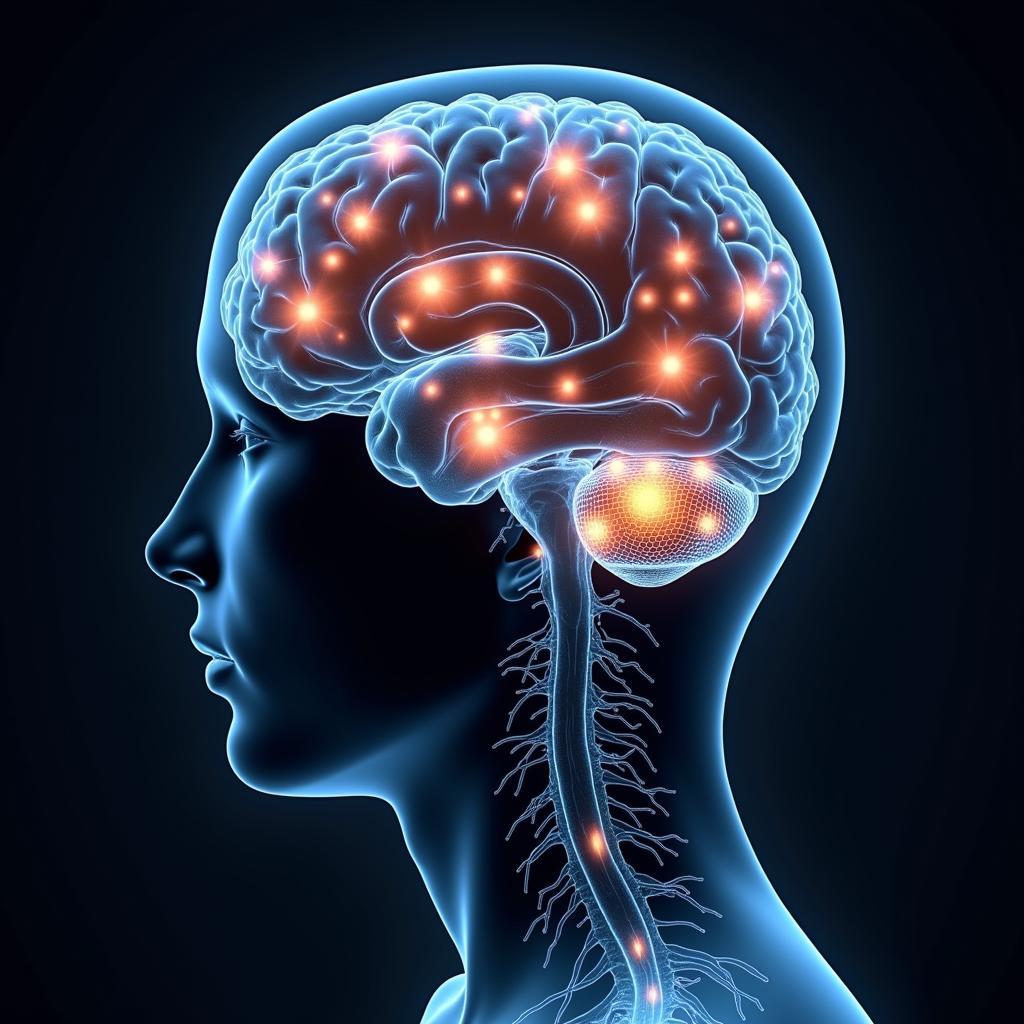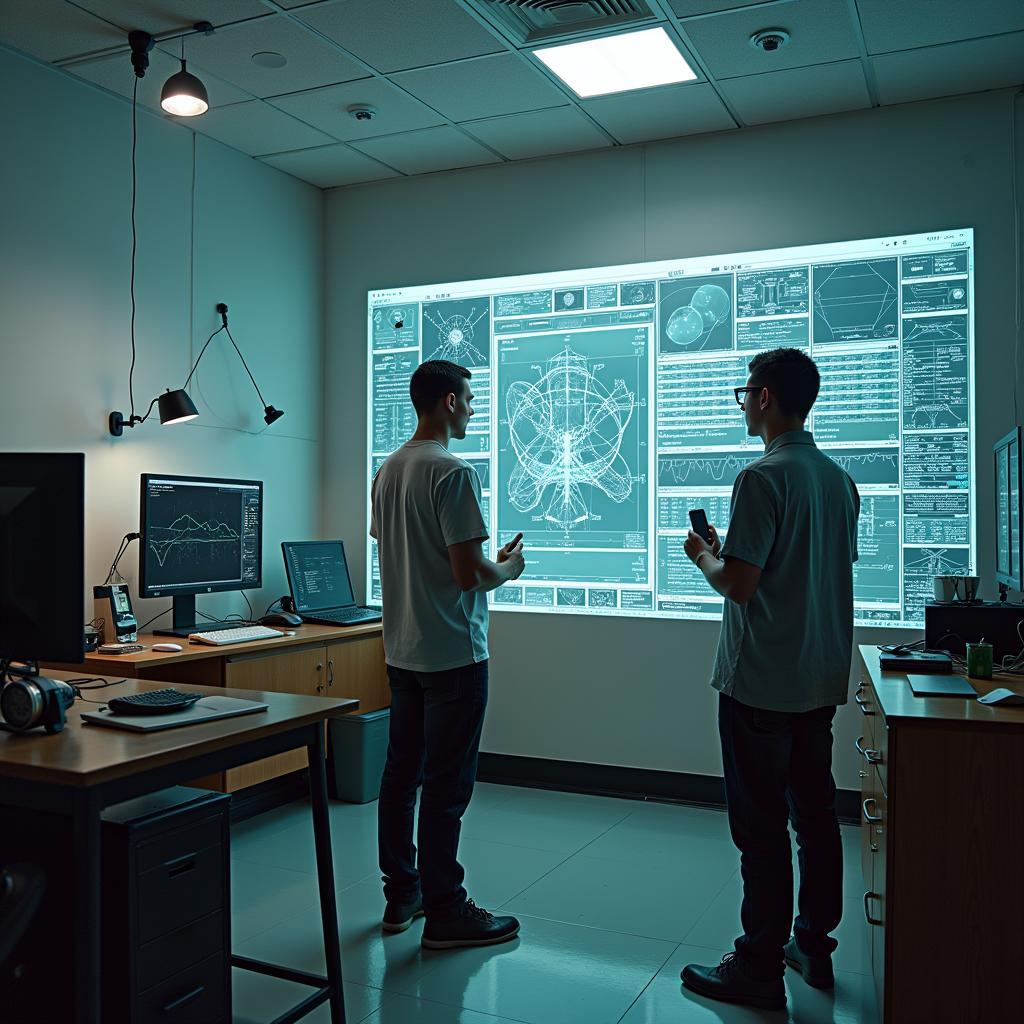Is 7th Sense Research Legit? The idea of a seventh sense, often referred to as intuition or gut feeling, has captivated humanity for centuries. But can this elusive sense be scientifically proven, or is it simply wishful thinking? This article delves deep into the world of 7th sense research, separating fact from fiction and exploring the legitimacy of studies surrounding this intriguing phenomenon.
Exploring the Science Behind 7th Sense Claims
While the five traditional senses are well-documented and understood, the concept of a 7th sense remains shrouded in mystery. Many claim to possess this heightened awareness, citing experiences that defy logical explanation. Researchers are attempting to unravel the mechanisms behind these seemingly inexplicable occurrences, exploring fields like extrasensory perception (ESP), precognition, and telepathy. However, concrete scientific evidence remains elusive, leaving many to question whether 7th sense research is truly legitimate.
Is Intuition Just a Lucky Guess?
Some scientists argue that what we perceive as a 7th sense is simply a combination of subconscious processing, past experiences, and pattern recognition. Our brains constantly gather information, even without our conscious awareness. This information can manifest as a “gut feeling,” which may sometimes appear accurate but is ultimately based on logical, albeit subconscious, deductions.
 7th Sense and Brain Activity
7th Sense and Brain Activity
The Role of Cognitive Biases
Cognitive biases also play a significant role in how we interpret our “intuition.” Confirmation bias, for example, leads us to favor information that confirms our pre-existing beliefs, while neglecting evidence that contradicts them. This can create the illusion of a 7th sense when, in reality, we are simply selectively interpreting information to fit our preconceived notions.
The Search for Empirical Evidence in 7th Sense Research
Despite the skepticism, numerous studies have attempted to provide empirical evidence for the existence of a 7th sense. Experiments on precognition, the ability to perceive future events, have yielded mixed results, with some studies showing statistically significant outcomes while others have failed to replicate these findings. This inconsistency fuels the debate surrounding the legitimacy of 7th sense research.
Can We Measure Intuition?
One of the biggest challenges in 7th sense research is the difficulty in quantifying and measuring intuitive abilities. Unlike our other senses, which can be measured using objective instruments, intuition is subjective and difficult to define. This lack of standardized measurement tools makes it challenging to conduct rigorous scientific investigations and further complicates the quest for legitimacy.
 Laboratory Setting for 7th Sense Research
Laboratory Setting for 7th Sense Research
“The biggest hurdle we face in this field is the lack of a universally accepted definition and measurement for the 7th sense,” explains Dr. Amelia Vance, a cognitive neuroscientist specializing in intuition and decision-making. “Without a clear framework, it’s difficult to design experiments that can produce replicable and meaningful results.”
The Impact of Belief and Placebo Effects
Belief plays a powerful role in our experience of the world, and this extends to the realm of the 7th sense. Individuals who strongly believe in their intuitive abilities may be more likely to interpret ambiguous events as evidence of their 7th sense. The placebo effect can also influence outcomes in 7th sense research, making it difficult to discern genuine effects from psychological influences.
“The power of suggestion and the placebo effect are significant factors that must be accounted for in any serious study of the 7th sense,” adds Dr. Jonathan Carter, a parapsychologist with decades of experience in the field. “We must be extremely cautious in interpreting results, especially when dealing with subjective experiences.”
 Skepticism vs. Belief in 7th Sense Research
Skepticism vs. Belief in 7th Sense Research
In conclusion, while the concept of a 7th sense remains intriguing, the legitimacy of 7th sense research is still under scrutiny. While anecdotal evidence and some studies suggest the possibility of a heightened awareness beyond our five traditional senses, concrete scientific proof remains elusive. Further research with rigorous methodologies and standardized measurements is crucial to unraveling the mysteries of the 7th sense and determining its true nature.
FAQ
- What is the 7th sense?
- Is there any scientific evidence for the 7th sense?
- How does intuition relate to the 7th sense?
- What are some common misconceptions about the 7th sense?
- How can I develop my intuition?
- Are there any reputable research organizations studying the 7th sense?
- What are the potential benefits of understanding the 7th sense?
Need further assistance? Contact us at Phone: 0904826292, Email: research@gmail.com or visit us at No. 31, Alley 142/7, P. Phú Viên, Bồ Đề, Long Biên, Hà Nội, Việt Nam. Our customer support team is available 24/7.